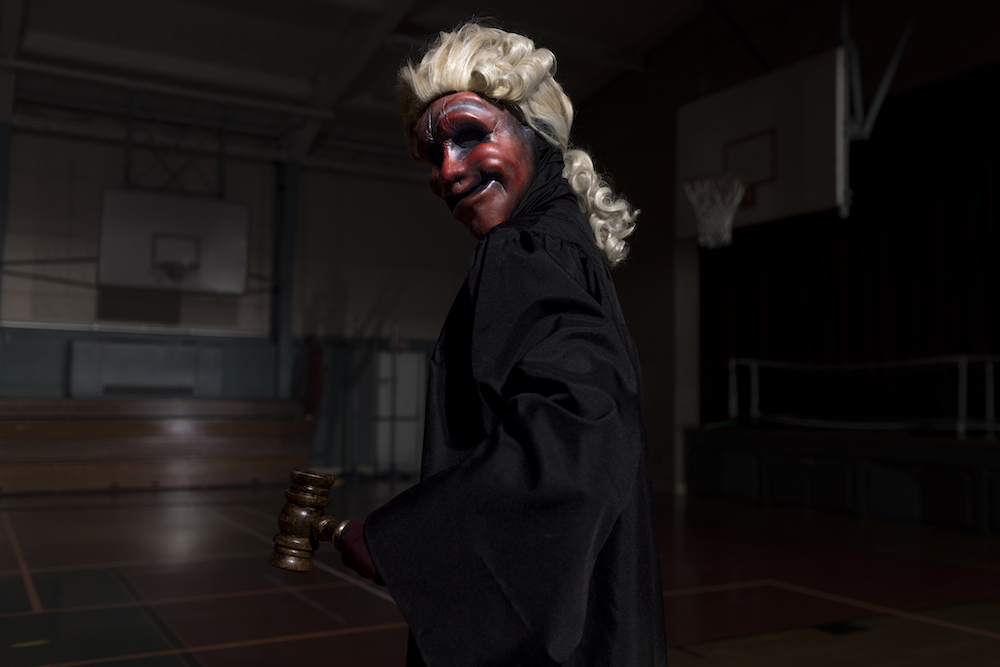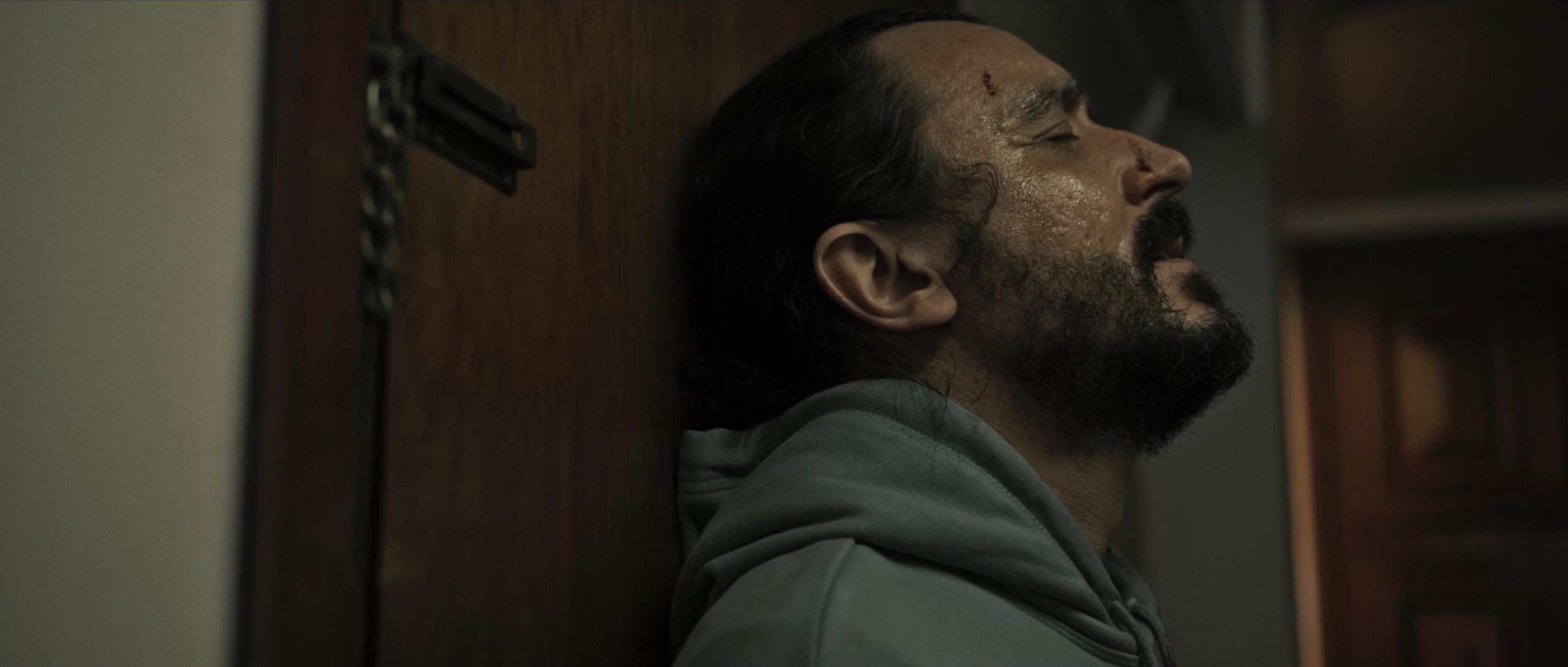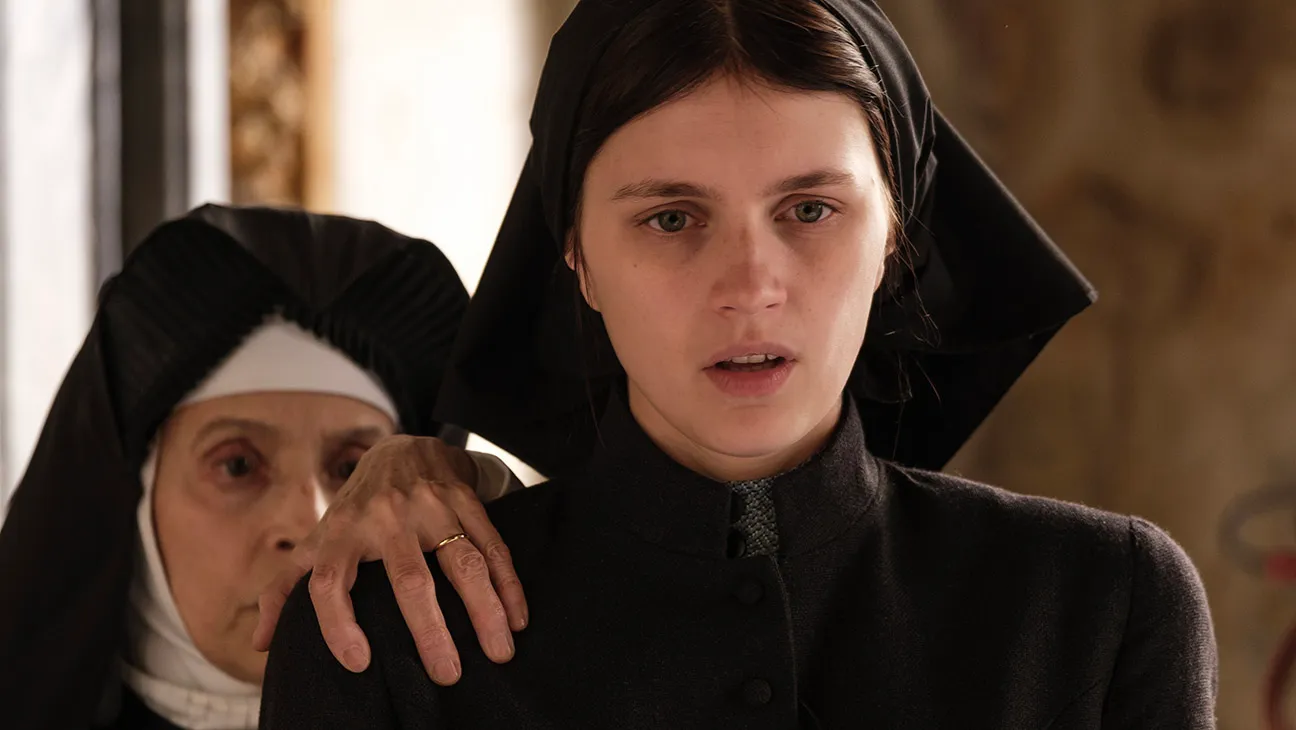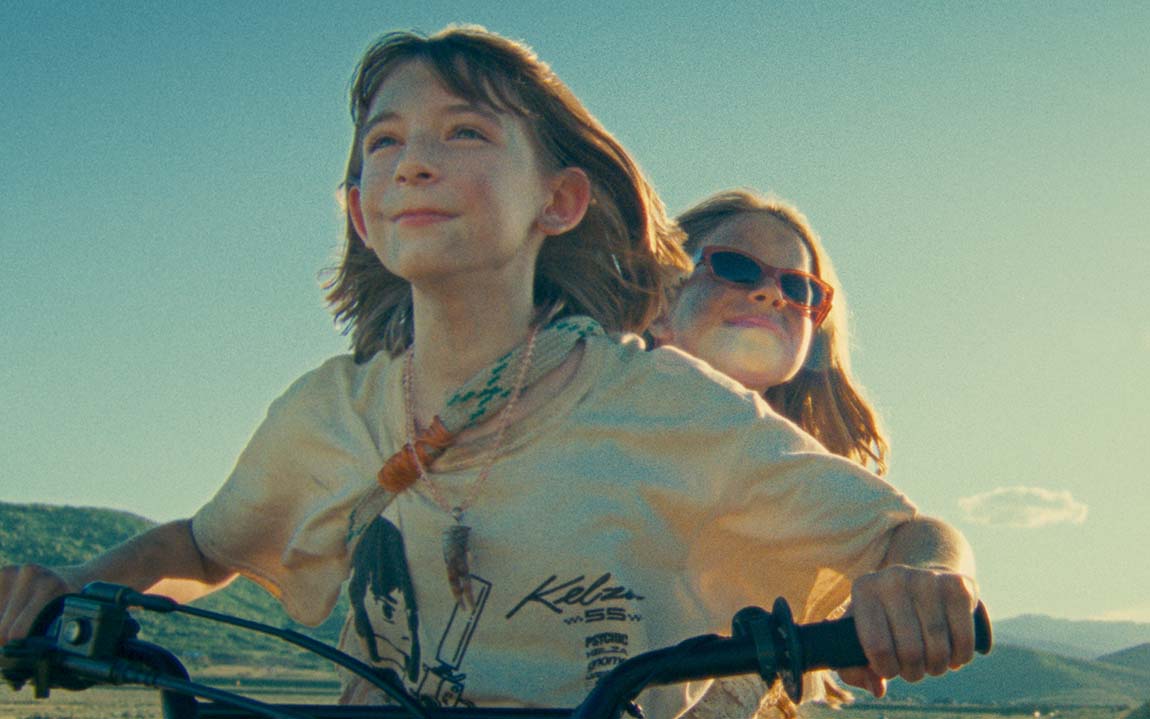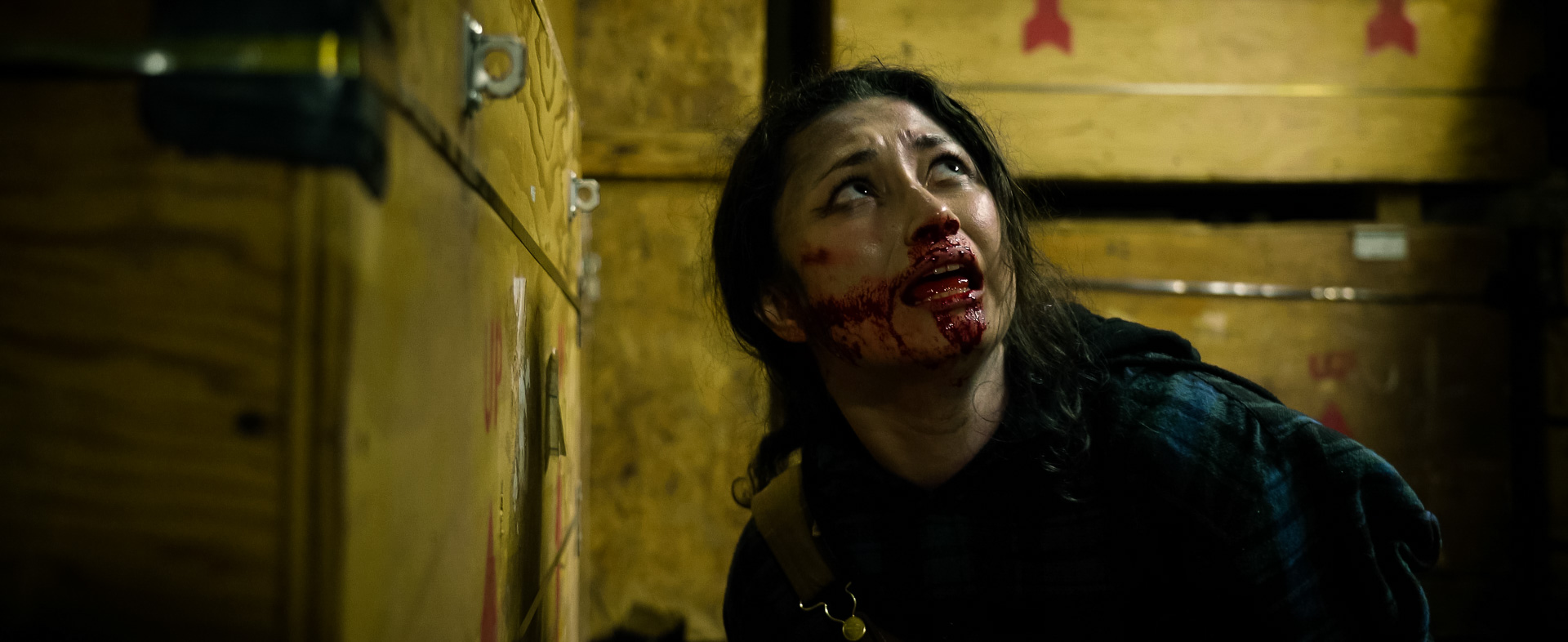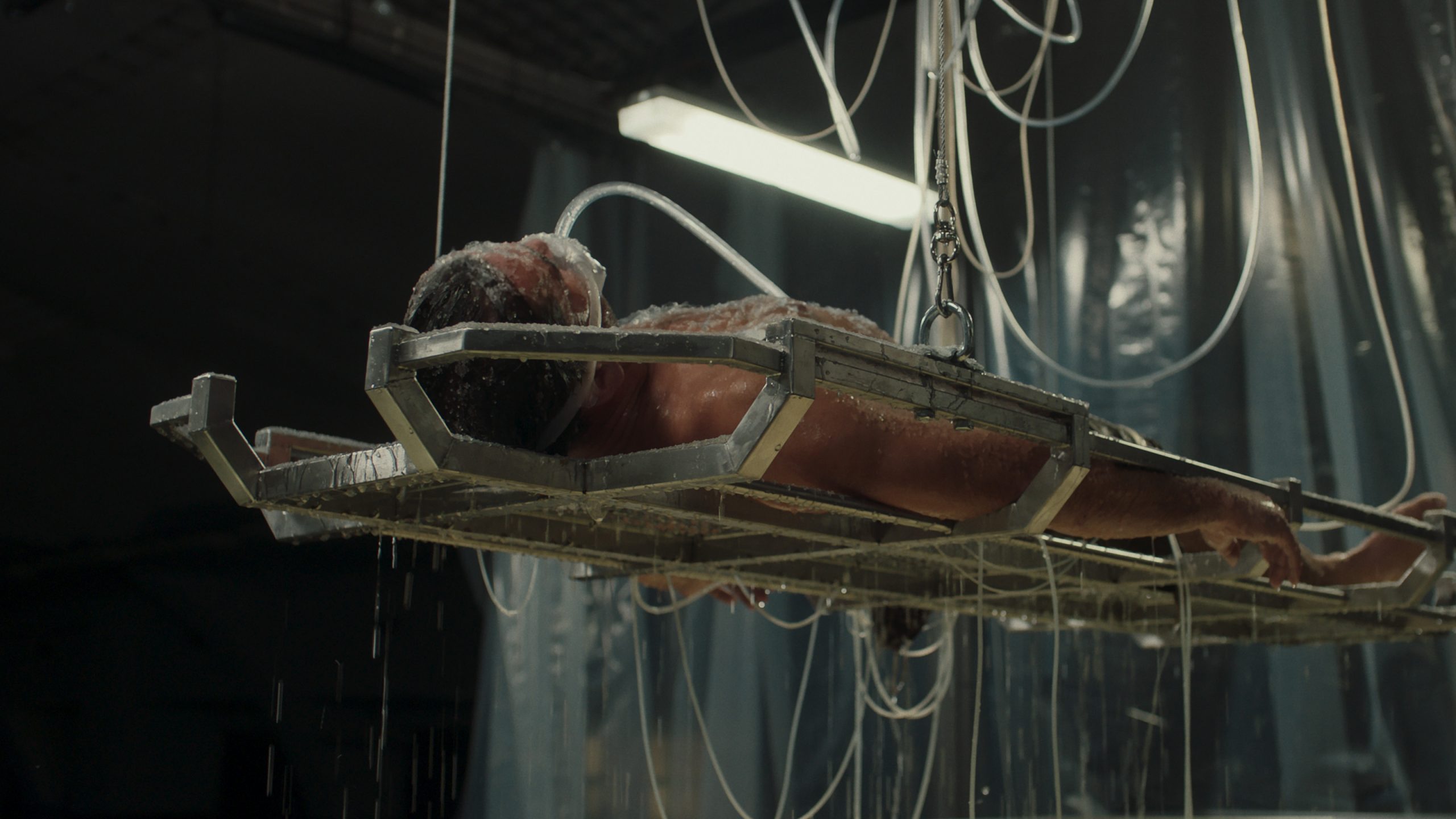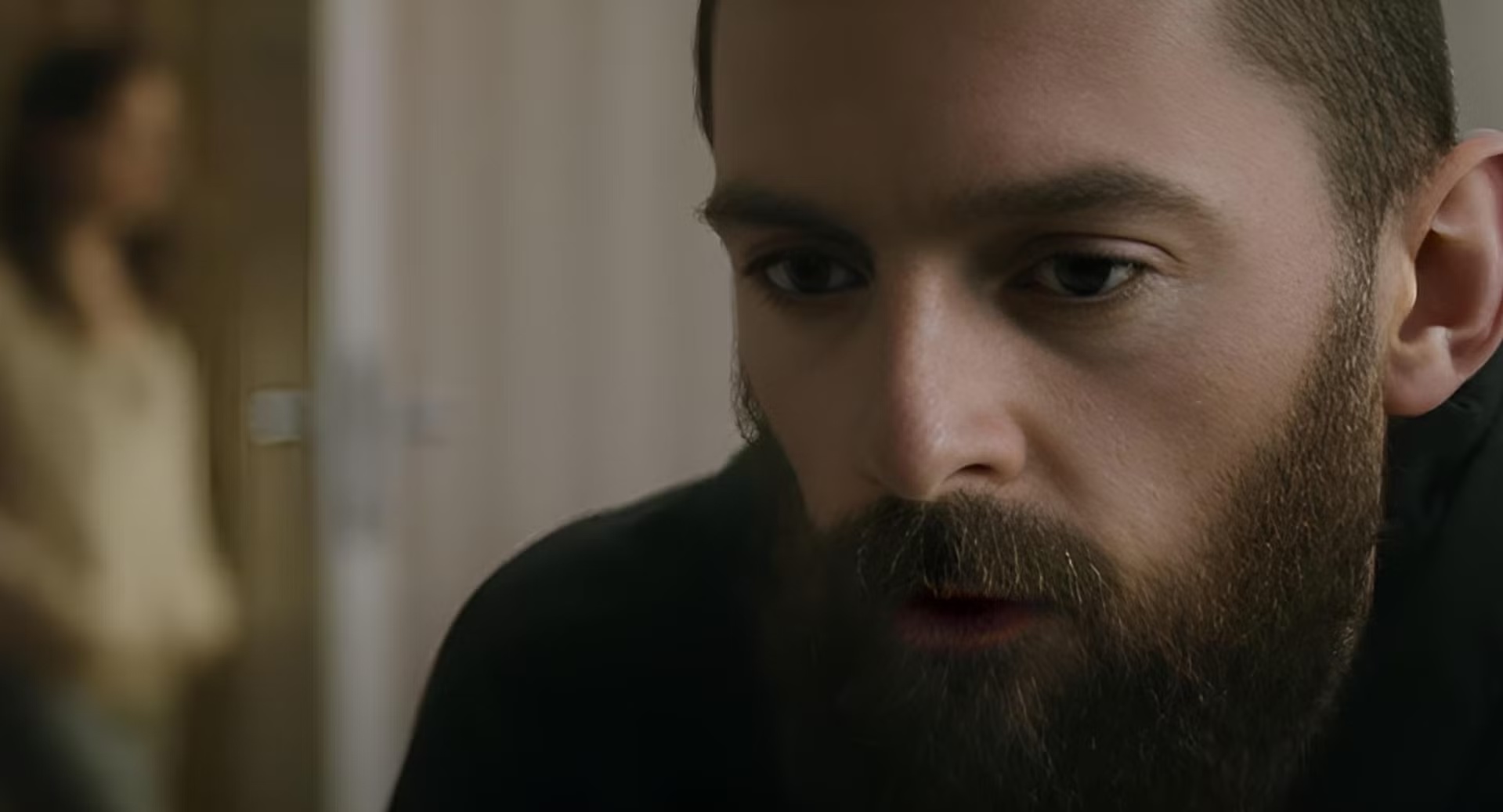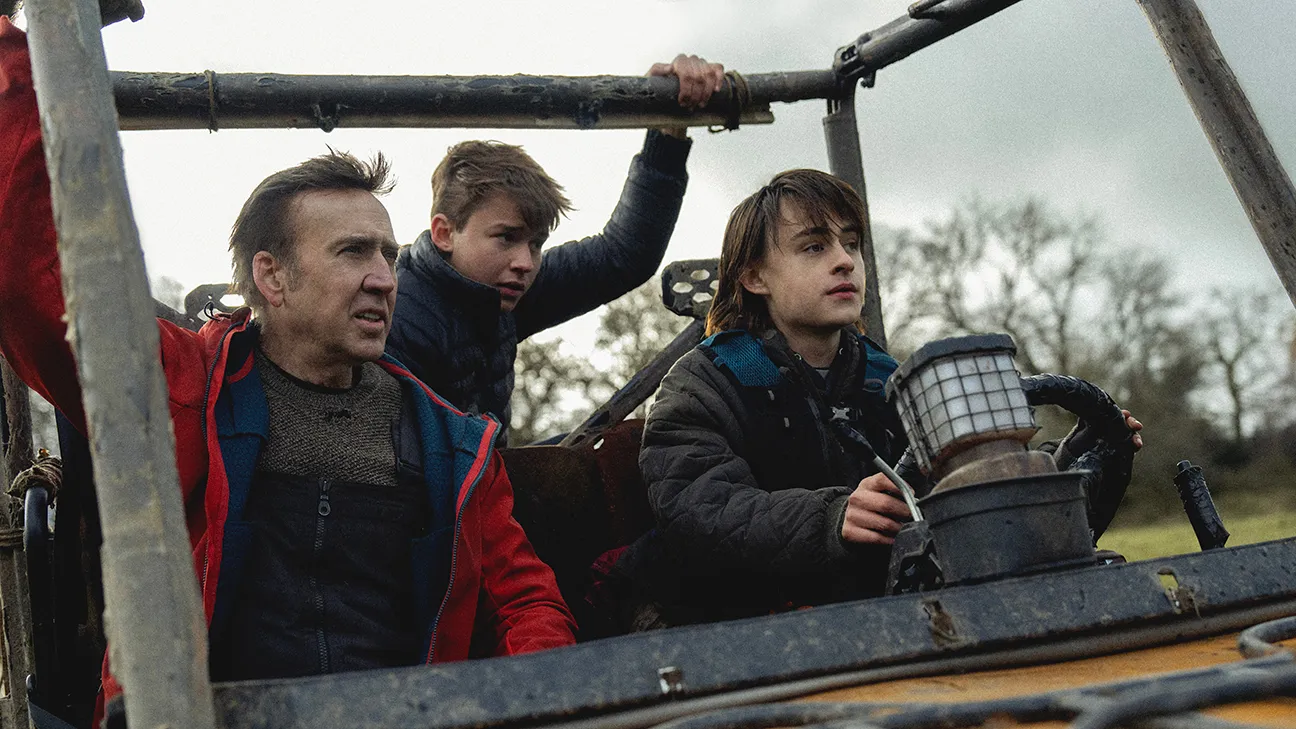Amidst an increasingly vicious mayoral race, a masked serial killer stalks the streets of small-town America, terrorising its denizens with a rictus smile and a bloodied gavel. Traumatised when the killer chooses her girlfriend as the first victim, young Allison (Naomi Grace) attempts to survive the night – her hometown becoming a blood-drenched battleground in the battle of the mayors.
This political slasher film by director Erik Bloomquist and co-writer (plus brother) Carson Bloomquist brings a modern-day agenda to a story straight out of My Bloody Valentine or the Scream franchise. There’s a masked killer on the loose, picking off various victims in and around town… but whodunnit?
The political angle is interesting but disappointingly toothless, with very little separating mayoral candidates Blair Gladwell (Amy Hargreaves) and Harold Faulkner (Jayce Bartok) beyond the fact that one of them is a woman and the other looks a bit like Cary Elwes. Both sides suck, sure (how very South Park of you), but there’s not much reason to care about either.
With other members of the cast struggling to hold up their end (its lead’s shrieking quickly becomes a problem), it’s down to veterans Catherine Curtin and William Russ to man the fort, giving an air of respectability to the misjudged comedy and clunky social commentary.
Grisly kill sequences and effectively employed stalk-and-slash tropes give the final stretch a bit of a boost. However, this slasher twist isn’t quite twisted enough when it comes down to the final count.

FOUNDERS DAY is released on digital platforms on April 29th.

